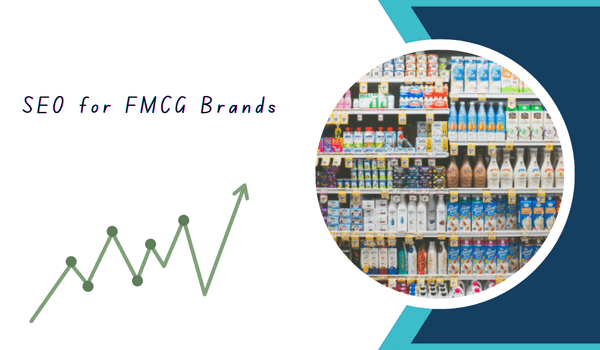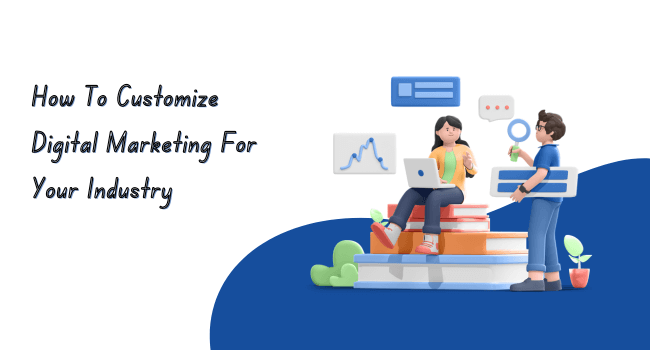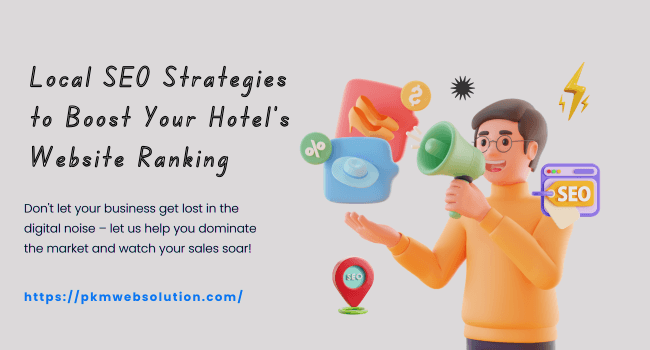Fast Moving Consumer Goods (FMCG) includes products people use daily. SEO for FMCG businesses helps them rank higher in search engine results. Without a good SEO company, it is tough to get noticed online. Traditional marketing methods are less effective now, and SEO can be complicated. It involves technical SEO, on-page and off-page optimization, paid ads, and more. Despite its complexity, a strong SEO strategy can drive organic traffic to FMCG websites and attract potential customers. In this post, we will explore the FMCG business model, the SEO strategies, and the impact of FMCG brands.
The ‘Legacy’ FMCG Business Model
The conventional business model for most of the known FMCG brands sells its products through retailers on the ground, like supermarkets, discount stores, and homeware shops. These mass-market channels present great volumes for sales. The push for cost optimization is then based on the operating costs in areas such as logistics, manufacturing, and distribution as the volume of sales grows.
By improving the supply chain, brands can save money, which can then be used for other purposes, like marketing. Spending more on marketing and advertising usually leads to more sales, creating a cycle that boosts sales even further.
When a competitor challenges a brand’s dominance, the solution is simple: release an improved version of the product, update the marketing message, and invest more in driving consumer sales.
SEO Strategies for FMCG Brands
Keyword Research
For FMCG businesses, keyword research is crucial. Focus on the search volume and user intent behind queries related to your products or services. For eCommerce FMCG brands, tracking search queries helps identify customer needs and volume. A smart SEO strategy based on these keywords can improve your rankings and boost your D2C efforts.
Website Audit
Every SEO strategy starts by identifying your website’s weaknesses and finding ways to fix them. A website audit looks at key elements like meta information, internal links, backlinks, schema markups, technical SEO, content gaps, and URL structure. Services like PKM Web Solutions can help check everything on the audit checklist and suggest improvements to enhance website performance.
Site Structure
A disorganized website structure can hurt your rankings. The goal of an eCommerce site is to make it easy for users to navigate and shop, and search engines need a clear structure to index your site properly. Define categories and product hierarchies to improve your site’s structure. Use your website audit to spot areas for improvement.
User Experience
Google now ranks websites based on user experience. If users leave your site quickly, Google assumes they didn’t find what they needed and ranks your site lower. On the other hand, if users stay longer, search engines see it as a good experience. Make your website user-friendly to improve SEO.
On-Page SEO
On-page optimization is essential for a strong SEO strategy. FMCG websites often have poor on-page experiences for both crawlers and users. Focus on optimizing meta tags, title tags, subheadings, permalinks, URLs, image optimization, interlinking, and content to improve both crawling and user experience.
Link Building
Building high-quality backlinks is a key part of improving your website’s rankings. Link building signals to search engines that your content is relevant and improves domain authority. Work with trusted domains, external publications, FMCG influencers, and media channels to earn backlinks and enhance your site’s authority.
The Impact of SEO on FMCG
For FMCG brands focusing on e-commerce sales or increasing brand awareness, driving traffic to a website can help with both goals.
Generating website traffic doesn’t happen on its own. It requires spending money on ads, such as website ads or paid search results, or creating content to meet user search needs. The second option is SEO.
SEO involves creating and improving content on a website that users are looking for. In simple terms, the more effort you put into SEO, the more visitors you will attract to your website. For an e-commerce brand, more visitors usually lead to more revenue.
Unlike paid ads, website traffic from SEO continues even when you stop paying for it. In contrast, paid advertising stops generating traffic as soon as you stop paying.
Here’s what FMCG brands should keep in mind for SEO:
Branded Search
For new brands or those that have recently rebranded, it’s important to own your branded search terms. When someone searches for your brand name, make sure you control as much of the first page of search results as possible.
You should aim to have your website homepage, social media pages, videos, or map listings appear in the results for pages you own and manage.
Unbranded Search
Unbranded search offers great opportunities for SEO.
When someone searches for a product or service you offer, without mentioning your brand name, you want to appear for as many related, intent-driven searches as possible.
With a strong SEO strategy, the content you publish on your site can help you rank for more general, non-branded keywords.
Conclusion
SEO for FMCG brands demands quick wins as well as long-term growth. With the right concentration on the specific keyword research, on-page and technical SEO, content strategy, as well as integration of SEO with paid ads, it is relatively effortless to stand out in a hectic competition within the FMCG market. Optimization of product pages through local SEO will have the same implications. Stick to these strategies and review your performance, and you will be sure to find yourself growing continuously.
FAQs
How to use SEO for brand awareness?
Use SEO to target relevant and branded keywords, create content for the entire customer journey, integrate with social media, and optimize for local SEO.
How to do SEO for a company?
Ensure Google can see your pages correctly, use descriptive URLs, organize similar pages, avoid duplicate content, and link to relevant resources.
How to do SEO for startups?
Start with clear objectives, conduct keyword research, plan content, optimize technically, build links, and continuously evaluate and re-optimize.
How do you market FMCG?
FMCG marketing involves increasing visibility and sales through online and offline channels, social media, influencer marketing, pricing, and promotions.




